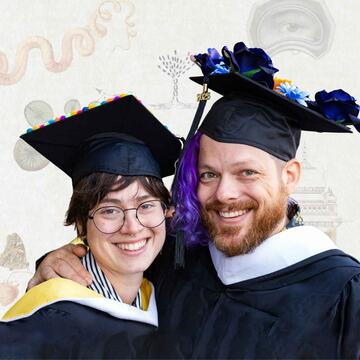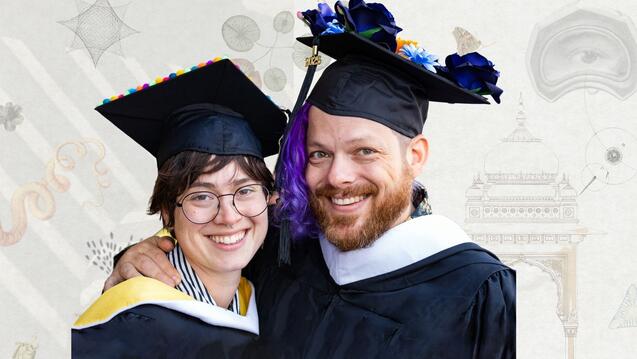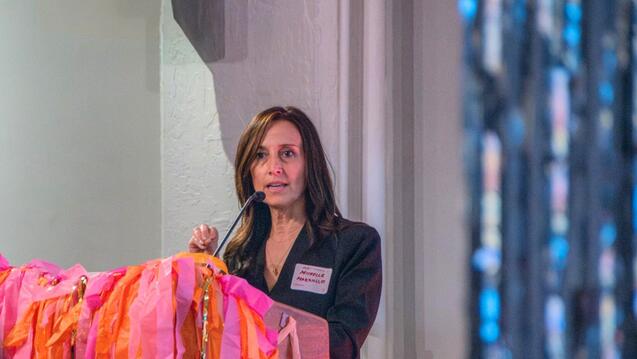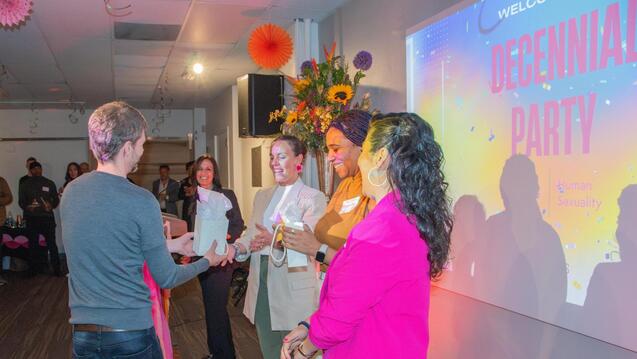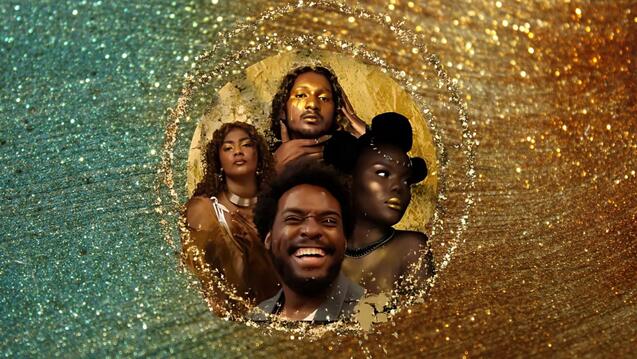Attend our online event on February 21.
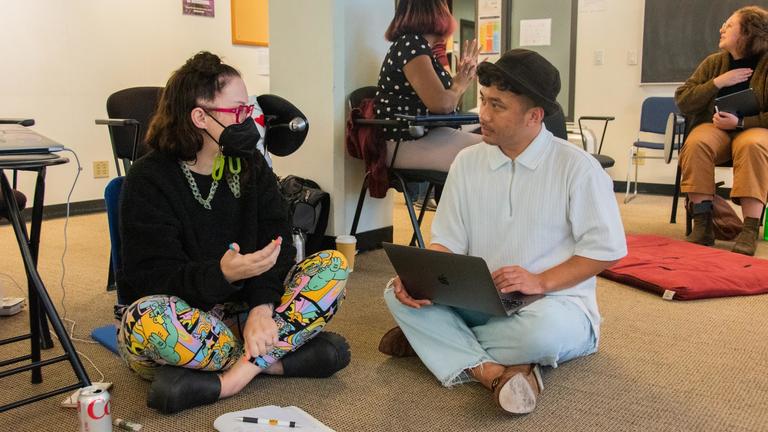
Department of Human Sexuality
Grounded, contextual engagement with current issues in sexuality to drive positive change
Our degrees in critical sexuality studies explore the intersections of power and sexuality. Students explore the urgent challenges in the field and the best theoretical and methodological solutions to meet them.
What Our Faculty and Students Have to Say
Learn about our new Master of Science degree program that can be completed in a minimum of two years.
The Human Sexuality department at CIIS draws professionals from many disciplines who are interested in furthering the scholarship of sexuality studies. We strive to provide an integral view of human sexuality that includes multiple perspectives and philosophies. Students are invited to explore desire, intimacy, identity, sexuality/gender, cultural influences, power and stigma, sexual response and practices, and reproduction.
The rigorous coursework invites students to create new knowledge via a scholar-practitioner model that allows for a deepening impact on scholarly insights and social change initiatives while remaining situated in the complexity of life. The department provides a rigorous academic environment and a way for you to engage in subject matter that will position professional work after graduation.
The program’s model moves you towards a grounded, contextual engagement with current issues in sexuality that have real material impact on people’s lives. Some examples of real-world inquiries pursued are:
- Black women’s sexual freedom
- Sex trafficking amongst Indigenous girls and women in Canada
- Clinical approaches to polyamory amongst millennials
- Examining self-compassion techniques for women dealing with the aftermath of sexual violence and trauma
Our Programs
CIIS offers a M.S., Ph.D., and a certificate in Sex Therapy to advance your understanding of human sexuality.
Our master’s degree program is designed to introduce students to critical sexuality studies and support their development as scholars in the field.
Our Ph.D. curriculum is designed for individuals who wish to gain further expertise after having obtained a master’s degree.
CIIS offers a Sex Therapy Certificate through our Public Programs department. The certificate program is open to all.
Faculty Research and Scholarship
Our faculty explore a wide variety of topics, including social and economic justice issues for the LGBTQIA+ community, the biopolitics of HIV prevention, and the reproductive journeys of transgender and nonbinary people.

An Inclusive Future for Sexuality Studies
In this conversation from the CIIS Public Programs podcast, faculty member Ericka Burns interviews sexologist Bianca Laureano about her new guide, The People’s Book of Human Sexuality, and centering the knowledge of minoritized scholars, educators, and therapists to create a liberatory future for the field.

On Critical Sexuality Studies and SexTech
Listen as Department Chair Michelle Marzullo discusses the M.S. in Critical Sexuality Studies and its emphasis in SexTech with the podcast Technology and the Mind. She explains the meaning of “critical” for the program: scholarship that brings nuance, history, context, and intersectionality to questions of sex, sexuality, and gender.
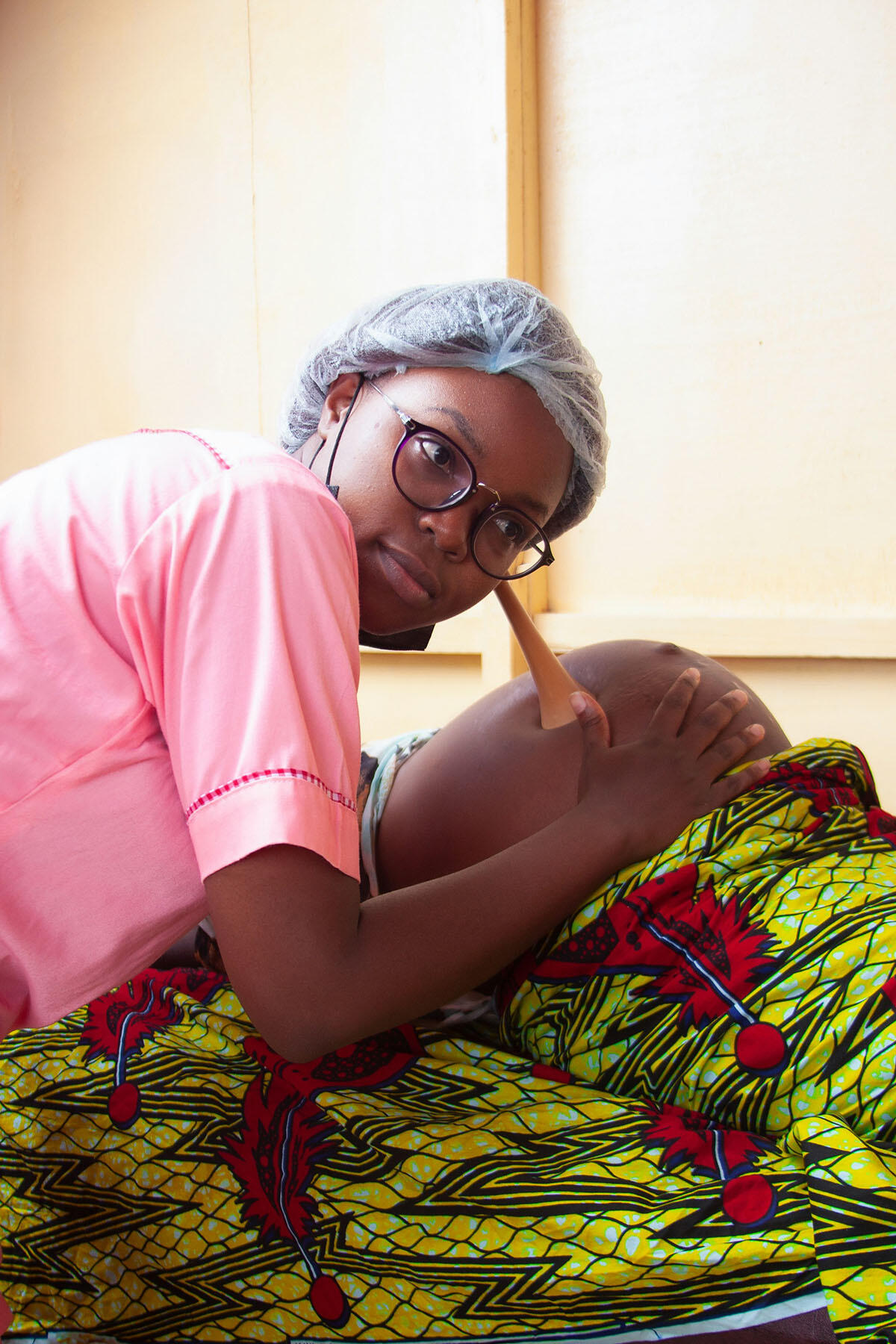
Medical Racism and Black Women’s Sexual Health Care
Professor Katharina Azim, alumni, and students of the Ph.D. program co-authored this important study on how medical gendered racism impacts Black women’s experiences with sexual and pelvic health. The analysis underscores the need for culturally specific approaches to ensure compassionate, just care for all.
Our Upcoming Events


Our Department in Action
Explore how CIIS’ Human Sexuality degrees empower students to create social change through research, theory, and advocacy.
A powerful event centering Black erotic divinity, healing, and spiritual liberation.


